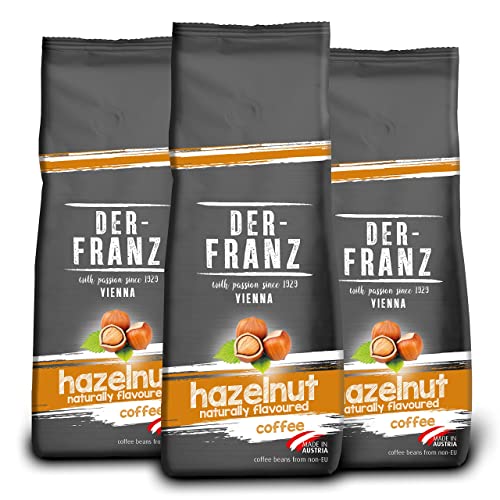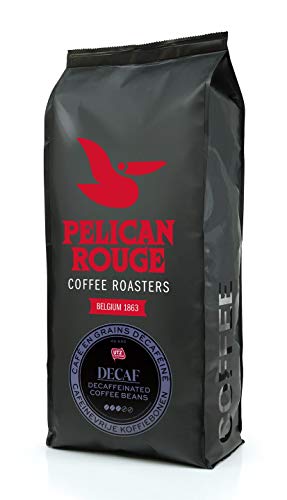20 Myths About Coffee Beans Types: Dispelled
페이지 정보

본문
Coffee Bean Types: Arabica, Robusta, Liberica, and Excelsa
You've probably heard that different varieties can produce distinct flavors. Find out more about four of the most popular varieties: Arabica, Robusta, Liberica, and Excelsa.
Excelsa beans, a variety of Liberica that is grown only in Southeast Asia. They have a sweeter and tarter flavor profile, and are often used in blends of coffee to add depth.
 Arabica
Arabica
Arabica coffee beans are responsible for 75% of all global production. Arabica beans are milder and have a sweeter flavor than Robusta and are available in a variety of flavor profiles. The aroma and taste of a coffee bean near me may vary greatly based on the climatic conditions and methods of processing employed to make it.
The word "coffee" originates from the Arabic word that means berry. cafe coffee beans beans are actually seeds which grow inside bright red berries. It is believed that the ancient Ethiopian shepherds realized that their goats were stimulated after eating these fruits, and the cultivation of coffee quickly began to spread throughout the world.
Coffee beans can grow at high altitudes and flourish in cold temperatures and lots of rain. This is one of the reasons that Arabica is regarded as the best-tasting type of coffee.
Many specialty coffee shops and roasters concentrate on the ethical source of arabica beans, with a focus on fair wages for farmers and sustainable farming practices. These companies often blend arabica beans to make unique specialty coffees that work well with a wide range of brewing methods. Blending can control the aroma, taste and body of the coffee. It is generally used to create a consistent and balanced taste that appeals to a broad market.
Robusta
Robusta beans (Coffea canephora) are the second most popular type of coffee bean grown in the world. They have more caffeine per bean and are more protected against pests and diseases. They also contain higher levels of chlorogenic acids, which are naturally occurring antioxidants. These acids can cause oxidation in the coffee brewing and produce undesirable flavors.
The plant itself is more durable than arabica, and can thrive in less favorable climate conditions and at lower elevations. It can tolerate higher temperatures and thrives in direct sunlight. It grows faster and produces more coffee per plant than arabica, which makes it a more cost-effective crop to grow.
Although it might sound odd the fact is that arabica and Robusta beans are often blended to make coffee blends. If you see names like Uganda or Kenya on a coffee bag it's likely that there is also some robusta.
While some roasters exclusively use arabica beans, most do a mix of the two varieties to reduce costs and preserve quality. To maintain the integrity of the flavor, it's important to select a top-quality bean from a supplier you are confident with. The best method to achieve this is to buy your beans directly from the farmer.
Liberica
Liberica beans have a shape that is like a football, which makes them different from other types of coffee beans. They have a unique aroma that is fruity and floral with subtle smoky undertones. They are paired with other types of coffee beans to provide them with a more rich and more robust taste.
Liberica coffee beans are grown in West Africa and Malaysia (Borneo) as well as in Southeast Asia. They are resistant to hot, humid climates and are able to grow at low altitudes. They are also more resistant to diseases than Arabica or Robusta.
These qualities make them ideal to grow at home. You can purchase seeds on the internet from a variety of sources, but it is best to purchase them from local producers to guarantee the quality of the beans. The ideal conditions for the cultivation of Liberica coffee plants include fertile deep volcanic soils with a moderately acidic pH and adequate annual rainfall.
Another kind of coffee bean is Excelsa, which was once considered a separate species but was re-classified as a variation of Liberica. These oval-shaped coffee beans are found on large coffee plants that range from 20 to 30 feet in height at moderate altitudes. Their distinctive taste is tart and sour, which makes them a popular choice for house blends. They have a more subtle aroma and higher caffeine content than Arabica or Robusta but they still have a distinctive depth of flavor.
Excelsa
Although they're the fourth most sought-after kind of coffee beans Excelsa beans aren't as easily accessible as Arabica or Robusta. In fact, they were considered a distinct coffee plant species until 2006 when they were classified as an alternative to Coffea liberica var. dewevrei. Today, they're grown mainly in Southeast Asia and account for 7% of the world's coffee production. These beans are distinctive with a teardrop shape and have a dark, mysterious taste. They are often blended to add extra body and a rich, tart, ripened fruit flavor.
Arabica beans are by far the most popular and are known for their sweeter taste. They thrive in tropical, warm climates and at high altitudes. They have a slight acidity. If brewed correctly and light roast coffee beans they may have notes of nuts, chocolate or even fruit.
Robusta is a close second only to Arabica and accounts for around 40% of the world's coffee. Robusta is rounder and smaller, but contain more caffeine than Arabica. They also have more bitterness than the other two varieties and are more likely to have earthy and woody overtones.
After having a better understanding of the four most common types of brew, it's time to pick your favorite drink. If you prefer a smooth and delicate flavor opt for an arabica or a blend made up of robusta and arabica beans.
You've probably heard that different varieties can produce distinct flavors. Find out more about four of the most popular varieties: Arabica, Robusta, Liberica, and Excelsa.
Excelsa beans, a variety of Liberica that is grown only in Southeast Asia. They have a sweeter and tarter flavor profile, and are often used in blends of coffee to add depth.
 Arabica
ArabicaArabica coffee beans are responsible for 75% of all global production. Arabica beans are milder and have a sweeter flavor than Robusta and are available in a variety of flavor profiles. The aroma and taste of a coffee bean near me may vary greatly based on the climatic conditions and methods of processing employed to make it.
The word "coffee" originates from the Arabic word that means berry. cafe coffee beans beans are actually seeds which grow inside bright red berries. It is believed that the ancient Ethiopian shepherds realized that their goats were stimulated after eating these fruits, and the cultivation of coffee quickly began to spread throughout the world.
Coffee beans can grow at high altitudes and flourish in cold temperatures and lots of rain. This is one of the reasons that Arabica is regarded as the best-tasting type of coffee.
Many specialty coffee shops and roasters concentrate on the ethical source of arabica beans, with a focus on fair wages for farmers and sustainable farming practices. These companies often blend arabica beans to make unique specialty coffees that work well with a wide range of brewing methods. Blending can control the aroma, taste and body of the coffee. It is generally used to create a consistent and balanced taste that appeals to a broad market.
Robusta
Robusta beans (Coffea canephora) are the second most popular type of coffee bean grown in the world. They have more caffeine per bean and are more protected against pests and diseases. They also contain higher levels of chlorogenic acids, which are naturally occurring antioxidants. These acids can cause oxidation in the coffee brewing and produce undesirable flavors.
The plant itself is more durable than arabica, and can thrive in less favorable climate conditions and at lower elevations. It can tolerate higher temperatures and thrives in direct sunlight. It grows faster and produces more coffee per plant than arabica, which makes it a more cost-effective crop to grow.
Although it might sound odd the fact is that arabica and Robusta beans are often blended to make coffee blends. If you see names like Uganda or Kenya on a coffee bag it's likely that there is also some robusta.
While some roasters exclusively use arabica beans, most do a mix of the two varieties to reduce costs and preserve quality. To maintain the integrity of the flavor, it's important to select a top-quality bean from a supplier you are confident with. The best method to achieve this is to buy your beans directly from the farmer.
Liberica
Liberica beans have a shape that is like a football, which makes them different from other types of coffee beans. They have a unique aroma that is fruity and floral with subtle smoky undertones. They are paired with other types of coffee beans to provide them with a more rich and more robust taste.
Liberica coffee beans are grown in West Africa and Malaysia (Borneo) as well as in Southeast Asia. They are resistant to hot, humid climates and are able to grow at low altitudes. They are also more resistant to diseases than Arabica or Robusta.
These qualities make them ideal to grow at home. You can purchase seeds on the internet from a variety of sources, but it is best to purchase them from local producers to guarantee the quality of the beans. The ideal conditions for the cultivation of Liberica coffee plants include fertile deep volcanic soils with a moderately acidic pH and adequate annual rainfall.
Another kind of coffee bean is Excelsa, which was once considered a separate species but was re-classified as a variation of Liberica. These oval-shaped coffee beans are found on large coffee plants that range from 20 to 30 feet in height at moderate altitudes. Their distinctive taste is tart and sour, which makes them a popular choice for house blends. They have a more subtle aroma and higher caffeine content than Arabica or Robusta but they still have a distinctive depth of flavor.
Excelsa
Although they're the fourth most sought-after kind of coffee beans Excelsa beans aren't as easily accessible as Arabica or Robusta. In fact, they were considered a distinct coffee plant species until 2006 when they were classified as an alternative to Coffea liberica var. dewevrei. Today, they're grown mainly in Southeast Asia and account for 7% of the world's coffee production. These beans are distinctive with a teardrop shape and have a dark, mysterious taste. They are often blended to add extra body and a rich, tart, ripened fruit flavor.
Arabica beans are by far the most popular and are known for their sweeter taste. They thrive in tropical, warm climates and at high altitudes. They have a slight acidity. If brewed correctly and light roast coffee beans they may have notes of nuts, chocolate or even fruit.
Robusta is a close second only to Arabica and accounts for around 40% of the world's coffee. Robusta is rounder and smaller, but contain more caffeine than Arabica. They also have more bitterness than the other two varieties and are more likely to have earthy and woody overtones.
After having a better understanding of the four most common types of brew, it's time to pick your favorite drink. If you prefer a smooth and delicate flavor opt for an arabica or a blend made up of robusta and arabica beans.

- 이전글10 Myths Your Boss Has About Electric Fire Media Wall 24.12.04
- 다음글seo for website 24.12.04
댓글목록
등록된 댓글이 없습니다.

